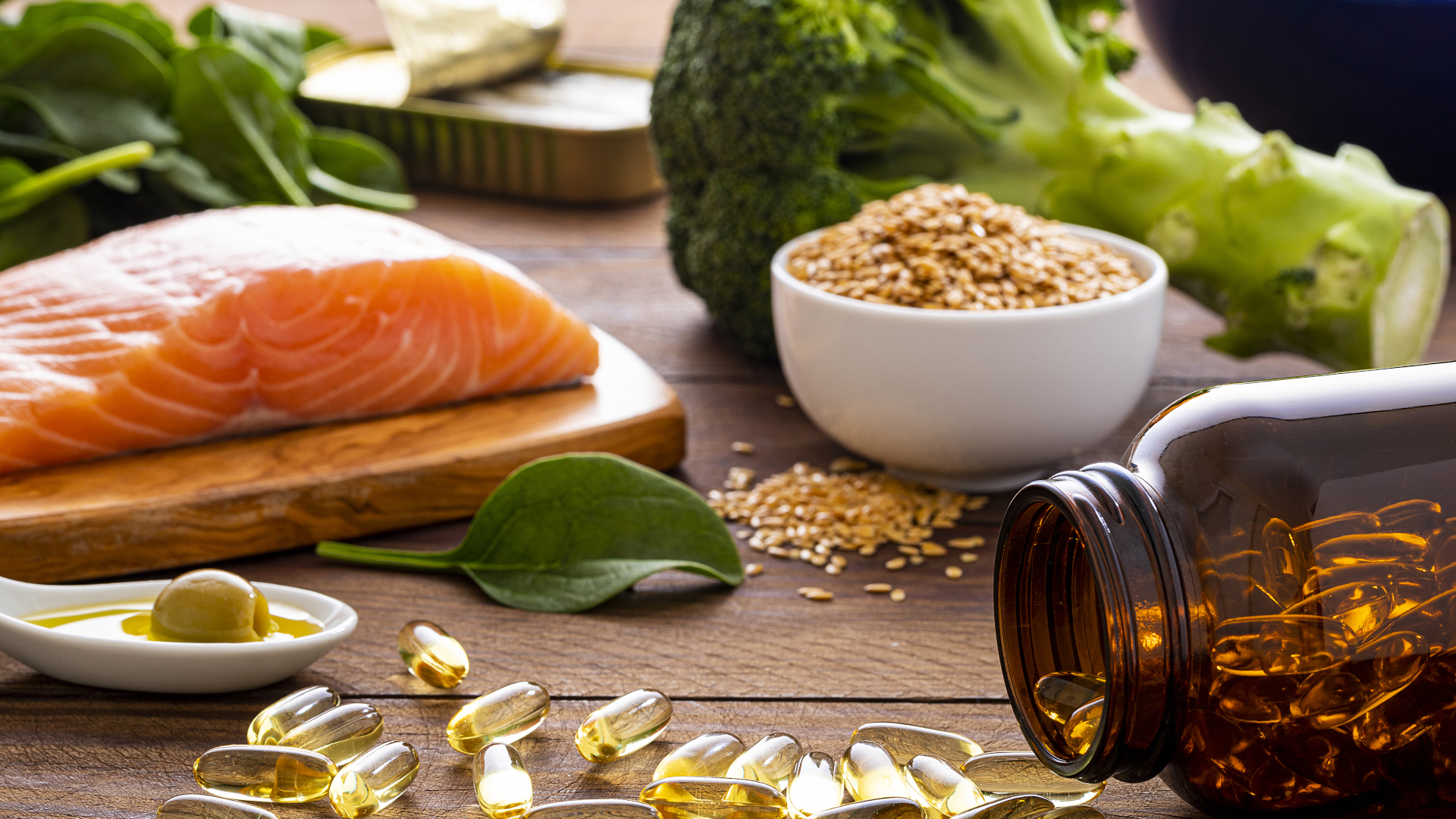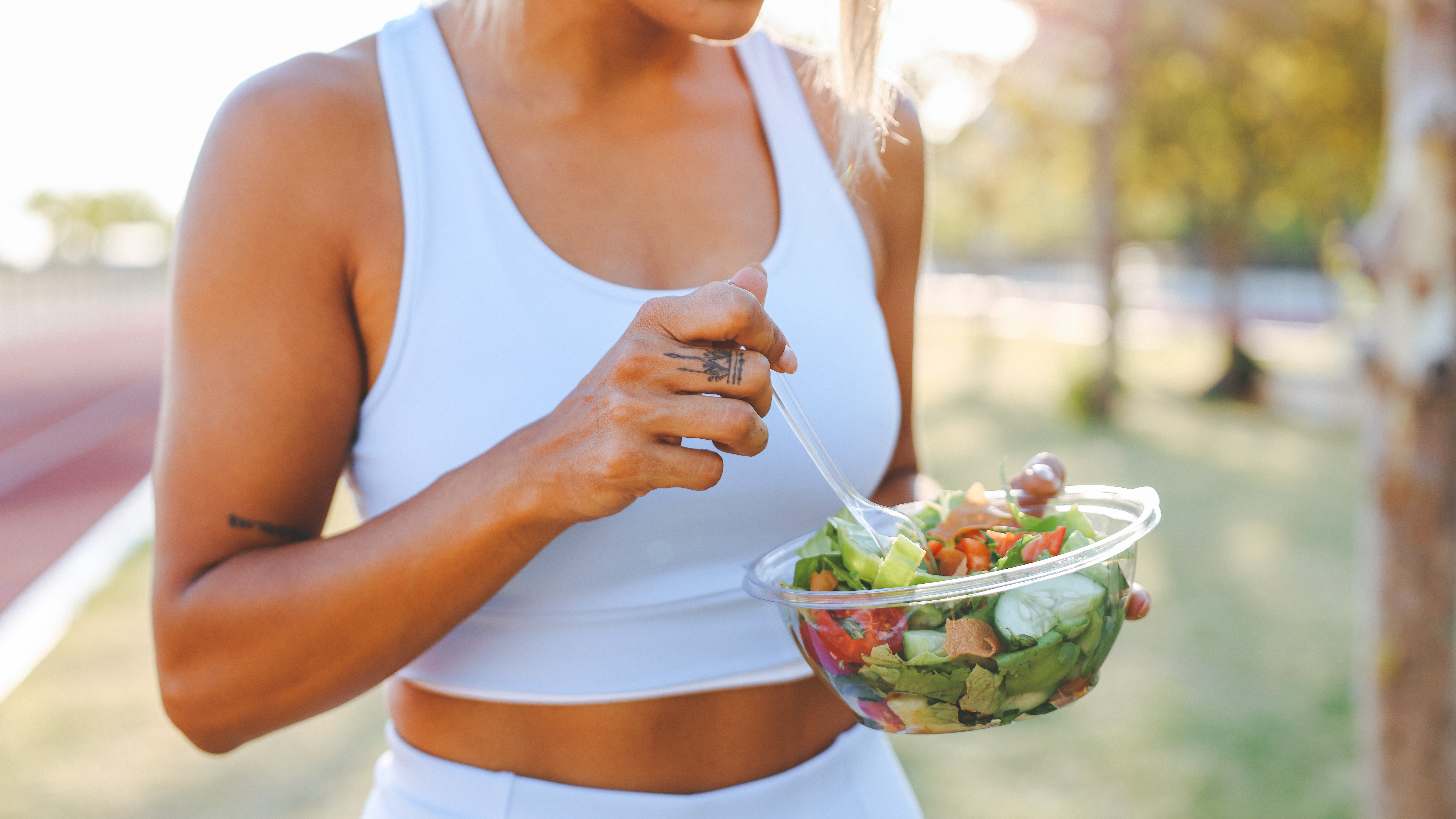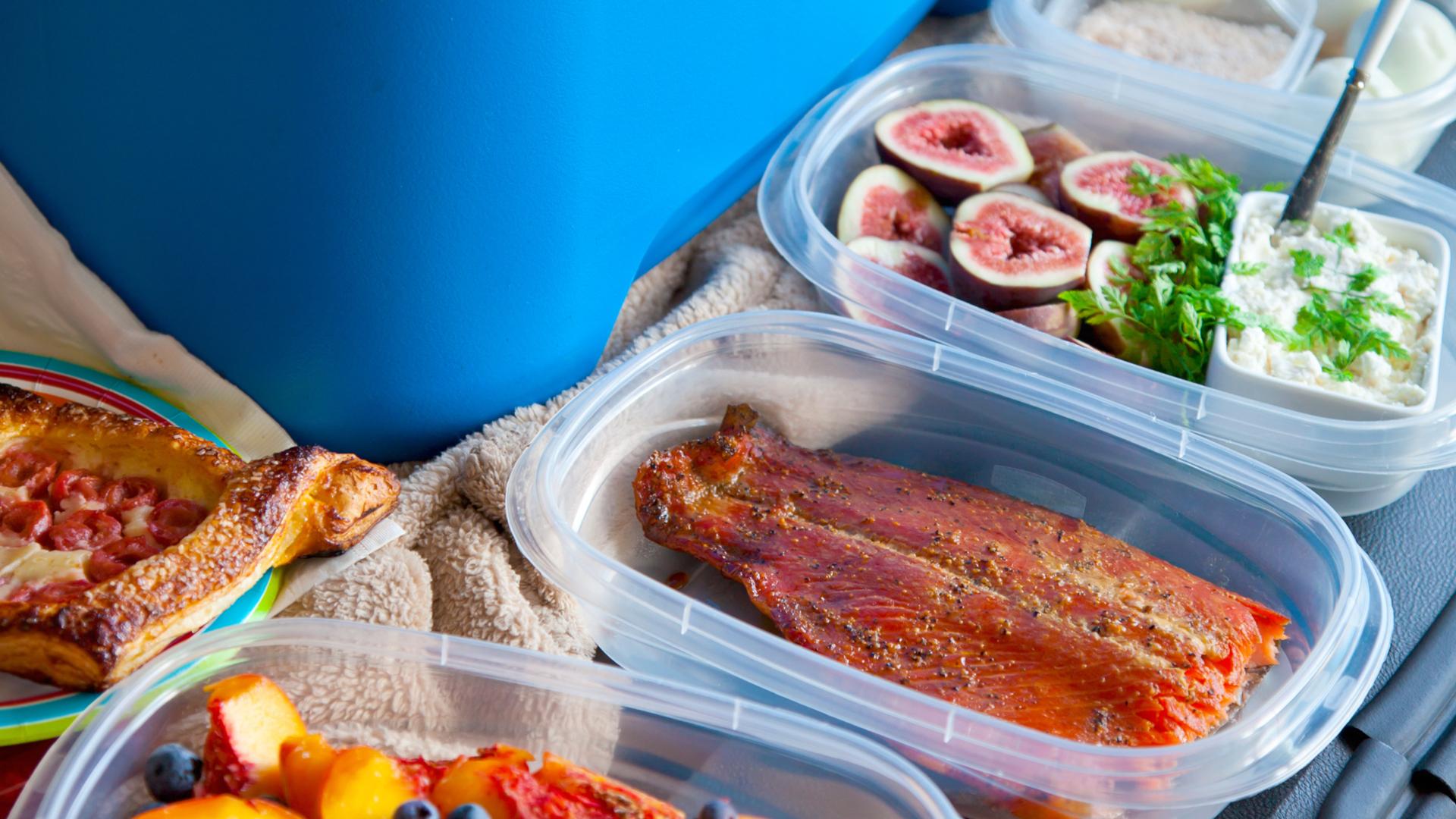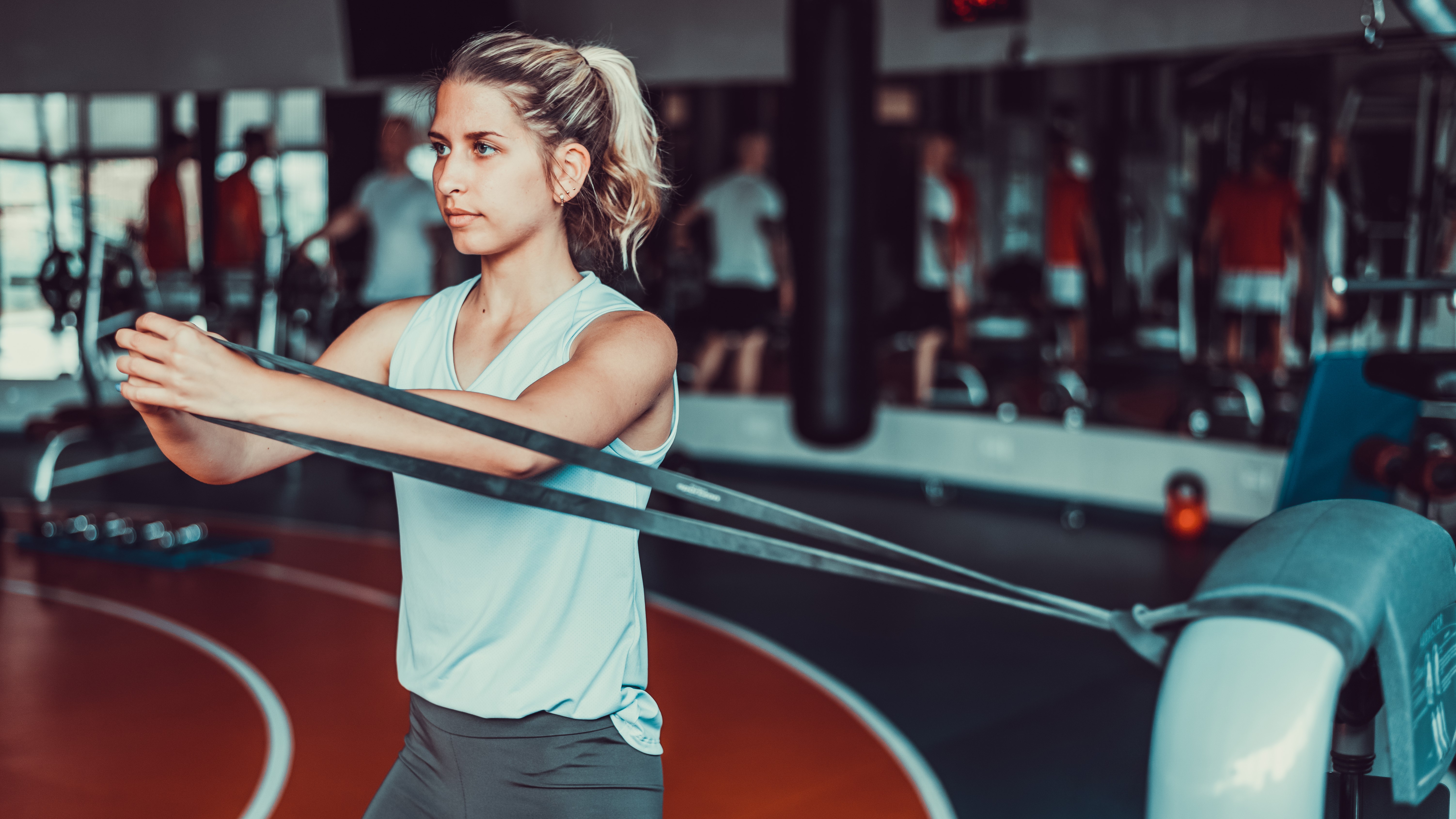
Always run on an empty stomach. Eat protein immediately after a workout. Avoid sugar at all costs. Lose weight to go faster. Nutritional beliefs like these are incredibly common, often contradictory, and somehow they’ve become inextricably interwoven with exercise science.
As an athlete, you probably know that what you put into your body is even more important than details like whether or not your trail running shoes have carbon plates. When it comes to what’s on your plate, you know want to avoid energy deficiency and perform at your best – but it can be difficult to know where to begin and even with the best intentions and a lot of science, some of your nutritional beliefs could be holding you back.
Despite surging interest in sports nutrition, a recent survey conducted by Zing, an AI coaching app, found that there’s still a lot of confusion out there about what to eat. For example, despite its essential role in general health, nearly a third of people still believe that a low-fat diet is a healthier one. For Zing co-founder and Chief Wellness Officer Walter Gjergja, the evidence that there is lingering confusion surrounding nutrition isn’t a big surprise, and it’s in part down to the fact that what we know about food is constantly changing.
“Science is a process. The scientific process is one of trial and error and testing and sometimes we forget that when there is a scientific finding, we take it as the gold standard when in fact science is a constant evolutionary process.”

Take eggs, for example. If you’re a runner or rock climber today, you may very well eat three eggs a day, but back in 1968, the American Heart Association announced a dietary recommendation that individuals consume no more than three eggs per week to keep their cholesterol levels in check.
“Eggs were brilliant and then suddenly they were hyper-demonized, they were the cholesterol machine,” recalls Gjergja.
“Then we discover that bad cholesterol is mostly a genetic factor and not actually caused by what we eat. The positive nutrients in eggs far outweigh the very minute impact that they may have on cholesterol and now we can eat practically as many eggs as we want.”
In that case, science was the problem, and had scientists not continued their line of questioning into dietary cholesterol, today you might be trying to train without one of your best food groups. Fortunately, scientific inquiry into dietetics and shows no signs of abating, and the increasing attention on nutrition is something that Gjergja says makes him feel optimistic about the future.
“On one hand, people are more and more unhealthy in terms of what they are eating, but at the same time there is a growing awareness on food quality and macro-nutrient awareness so hopefully we’re at a moment of shift.”

Originally from the Alps, Gjergja spent years training in Kung Fu in China, where he became a Shaolin monk and says he developed a strong connection to the outdoors while training his body and mind in nature. He later returned to Europe where he says he took it upon himself to repackage his wellness knowledge and make it accessible for Westerners. In his work with Zing, he takes a holistic approach to fitness where he’s able to apply some of the principles of Shaolin, such as eating closer to nature and avoiding what he calls the “shortcut” of processed food.
“What you consume should be as natural as possible. The less processed it is, the better it is. It tastes better, it’s healthier for you and it’s more ethical.”
It sounds sensible, and it is, but still, we find ourselves scratching our heads around what to eat and when, so Gjergja talks us through some common nutritional myths that still prevail among athletes, and how to take a more balanced approach to fueling for sport.

“Don’t associate eating fat with getting fat”
One in five people still subscribes to the idea that eating fat makes you fat, and while Gjergja knows that most athletes tend to be very scientifically minded, an idea like this can pose a major problem for performance, especially if you replace fats with too many refined carbs to get energy.
“Fats in general are better for us than carbs, especially those carbs that are derived from highly refined white flour, which immediately becomes sugars and can trigger a lot of inflammation.”
These days, the AHA has updated its guidelines to drop dietary cholesterol restrictions and now advises that healthy fats, such as those you’ll find in vegetable oils, fish and nuts, are essential for energy, to support cell function, to protect your organs, absorb some nutrients and produce important hormones.
“Don’t be afraid of fat and don’t associate eating fat with getting fat,” says Gjergj, who explains that weight gain is the result of a surplus of unused resources and those resources can come from anywhere.
“The moment you don't create the surplus and you are within your correct caloric range then it’s better to get more of those calories from fat.”
Sugar, meanwhile, another food source that’s demonized in the wellness world, also has its place for athletes. Though it can be addictive and taken in excess, Gjergja says that for an athlete, a sugar-packed snack like a running gel is the fastest way to trigger an energy response in the body when you’re in the middle of a long race.

“More protein, more muscle repair”
By now we all know that protein is essential for muscle repair, but confusion remains around how much is needed, when to eat it and in what form. Case in point: a third of people believe protein shakes are necessary to build muscle, while two in three believe that too much protein is a bad thing.
For athletes, Gjergja sticks to the simple formula of one gram of protein per pound of body weight per day. More, however, is not a problem. Though it’s been widely reported that eating too much protein can damage your kidneys, current research has found no scientific evidence of detrimental effects on the renal system from a high-protein diet.
“The more protein, the more muscle repair, the better cognitive function,” says Gjergja, adding that he’s a fan of protein for athletes because of its high satiety index. If you eat a small quantity of fish, you’ll feel full faster than if you eat the equivalent caloric quantity of pasta, and your body will have less digestion to do.
“If we can give our body tricks to reduce the overall caloric intake, it's very useful.”
However, the idea that you need that protein shake or fillet of salmon immediately after a run or workout is just plain wrong. Muscle repair takes several days, which is why you sometimes experience DOMS for three or four days after a long run, and as long as you get adequate protein (meaning grams per pound of body weight) during those days, your body can do its job.
“As long as in the 24 hours after training you get the right amount of protein, whether you get it all immediately or you get it 10 hours later has very little impact.”

“Don’t be afraid to gain muscle”
Another common belief among runners as well as athletes like rock climbers and cyclists that might be holding you back is the idea that the lighter you are, the faster and more efficient you will be.
The glorification of a leaner look is driven in part by aesthetics, but Gjergja says this is another area where the science may actually be misleading some of us. Some athletes believe that their VO2 max will be higher if they lose weight because they’re using the same amount of oxygen capacity on a smaller body, so they'll restrict calories, but that’s not the case.
“As you get lighter, your VO2 is not automatically improving and the side effect of that is that you sometimes start controlling your weight too much,” says Gjergja.
Too much can look like developing an intentional or unintentional eating disorder or some malnourishment which will then compromise your performance.
“You simply don't have the fuel in the muscle power and the fuel reserves in terms of body fat to be able to sustain that prolonged effort.”
Don’t be afraid of body fat, which can give your organs a vital layer of insulation during cold weather expeditions and overnight trail races, and don’t be afraid that muscle will weigh you down and make you too bulky to move.
“I’ve met a lot of endurance athletes who thought that if you get heavier it’s a problem, and all of the ones who gained lean mass, even substantial weight in some cases, actually improved their endurance, their power outage and strength across whatever the discipline they were doing.”
As Gjergja puts it, don’t assume that your only choice as an athlete is to be super skinny or supersized.
“Between marathon runner and Mr Olympia there is a healthy range of very athletic people that are not so muscular that it starts being a detriment to their performance.”







